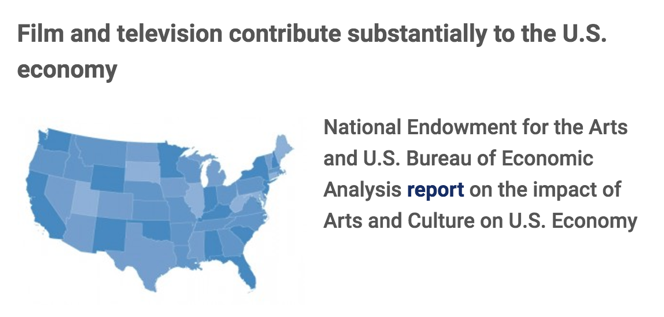Welcome to CreativeFuture’s Search Engine Optimization Starter Guide!
Let’s face it, search engine optimization (SEO) can be overwhelming for beginners. With tons of information and guides readily available online, knowing where to start is half the battle.
In the entertainment industry specifically, effective SEO practices can help ensure that legitimate sources of content will appear ahead of illegitimate sources in search rankings. SEO is an important tool for you to protect the value of what you create and to reduce online piracy of your creative works.
That’s why we created this SEO starter guide to help you build and optimize your website to reach more people and stay on top of search-engine rankings.
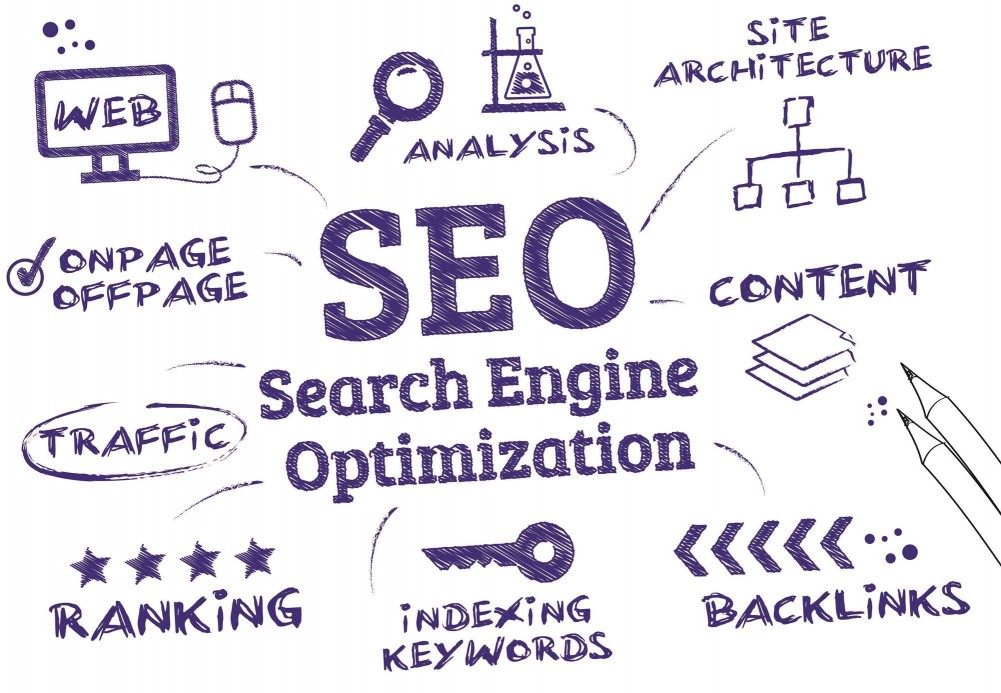
What is SEO and why is it important?
Search engines are the intermediary between your website and the rest of the online world, so having your site appear among the top few search results is essential, it is estimated that the top three search results constitute over 50% of search referrals. Essentially, the second page might as well not exist. If legitimate links to your creative content appear higher up on the first page of search results, you improve your chances of protecting the value of your work.
Search engine optimization (SEO) is a marketing practice that enables website owners to increase visibility in organic (non-paid) search engine results. Since people are more likely to click on one of the top suggested search results, and because SEO helps websites to appear in these top results, it is an important part of your marketing strategy.
In this guide, we break down everything you need to know about SEO so you can start optimizing your website today.
Table of Contents
- SEO Basics
- Build Backlinks
- Title Tags
- Meta Description Tags
- Improve Your Site Structure
- Improve the Structure of Your URLs
- Make Your Site Easier to Navigate
- Optimize Content
- Create Content That Can Be Indexed
- Research and Target Keywords
- Leverage Social Media
- Grow and Engage Your Following
- Make Your Content Searchable and Shareable
- Take Advantage of Social Media Meta Tags
- Link to Your Webpage
- Measure and Track Success
- More SEO Reading
1. SEO Basics
In this section, we’ll explain the basic things you need to know when thinking about SEO for the first time. An optimal SEO strategy would include a little of everything described in this tutorial – but if you’re short on time, focus your efforts on the strategies in this section. That will go a long way to improving the performance of your website.
It’s worth remembering that search engines build their understanding of your site based on readable text.
Entertainment sites are often graphics heavy, so it is crucial to remember that to search engines, all graphics look the same – you should include appropriate text on the page to ensure that it is properly indexed.
Build Backlinks
What are backlinks and how do they help my site?
Backlinks are links from other websites that point to your site. They help show search engines that your website is popular, thereby boosting its ranking. The number of backlinks you have is the single most important factor that search engines consider when ranking your website. Some industry experts estimate backlinks may account for as much as 80% of the weight that search engine ranking algorithms give websites.
How do I build backlinks?
You can’t control other websites, of course, but by linking your site to other sites, you will encourage those other sites to link back to yours. A good place to start is linking to two or three relevant websites per week – perhaps in blog posts, for example. By doing this, those sites are more likely to link back to yours, which signals to search engines that your content is relevant and popular, thereby increasing its search ranking. A backlink from a well-ranked site will count more than one from a low-ranked site.
But remember, search engines can identify whether you have paid for backlinks, and because most don’t condone paid-for SEO practices, paying for backlinks could actually end up getting your site demoted in the search rankings – making it even more difficult for people to find it.
Other methods for building backlinks include:
- Link to your website when commenting on relevant blogs. Setting up Google Alerts for key topics on which you may want to comment can help you identify good opportunities to post your backlinks.
- Sign up for Help a Reporter Out (HARO). HARO is one of the best ways to get backlinks from authoritative news sources, which search engines recognize as high quality. After signing up, you’ll receive three emails a day from reporters looking for sources. In exchange for your tailored response, the reporter will backlink to your website. You can sign up for HARO here.
- Engage in discussion on question-and-answer platforms such as Quora, Yahoo, and Reddit, and reinforce your answer by linking back to your website.
- Include your website and links in other promotional materials, such as press releases.
Title Tags
What are title tags and how do they help my site?
A title tag tells users and search engines what a particular page on a website is all about. It shows up as the big blue link in search engine results (shown below), providing search engines and website visitors with information about your site. The title tag is the boldest, most obvious element in a search result, so it plays a major role in the decision-making process of whether someone will click on your link.

How do I leverage title tags?
Each of your pages should have a unique title tag that distinguishes it from other pages on your site. Title tags should be compelling, concise, and attention grabbing. Avoid default or vague titles such as “Untitled” or “New Page 1.” Most search engines only display the first 65-75 characters of a title tag, so try to keep your titles within that range for maximum impact.
Meta Description Tags
What are meta description tags and how do they help my site?
The meta description tag gives search engines a summary of what your pages are about and entices people to click on your website when it appears in search results. Whereas the title of a page may be a few words or a phrase, a page’s meta description tag might be a sentence or two:

Meta description tags aren’t important to search engine rankings, but they are extremely important for getting people to click on your website once it appears on the search results page – and the more people who click on your site will, in turn, help increase its search ranking over time.
How do I leverage meta description tags?
Meta description tags should be both informative and interesting as they typically appear beneath the title in search results. You shouldn’t write meta description tags that don’t relate to the content of your page (obviously). You should also try to avoid the following: (1) using generic tags, (2) filling page descriptions with only keywords, and (3) copying and pasting the entire content of a document into the meta description tag. Adding meta description tags to each of your pages is always a good idea. Google’s Webmaster Tools offers a content analysis section that reveals whether meta description tags are too short, too long, or unnecessarily duplicative.
2. Improve Your Site Structure
Whether your website already has a streamlined structure or it’s just a jumbled mess of pages, this section will help you make sure that your site is optimized to help search engines lead people to it.
Improve the Structure of Your URLs
What are URLs and how do they help my site?
URLs describe a site or page to visitors or search engines. They are displayed in search results below the title and meta description tag. Although URLs are mainly intended to help web browsers find specific pieces of content, if your URLs contain keywords, search engines are more likely to direct users to your site. Like title tags, search engines use URLs to help determine relevancy and rankings in search results. The structure of domain names and URLs is one of the most fundamental building blocks of SEO.
How do I improve the structure of my URLs?
Choose URLs that will be easy for users and search engines to understand. URLs with words that are relevant to your site’s content and structure are more likely to be clicked. Avoid using lengthy URLs with unnecessary parameters, generic page names like “page1.html,” or excessive keywords. URLs that are easy to read are more likely to be shared. To learn more about good URL structure, check out this guide to creating search engine friendly URLs.
Make Your Site Easier to Navigate
What is a navigation system and how does it help my site?
A website’s navigation system serves as a road map to all of the content and information contained on your website. A clear site structure and navigation system helps search engines have a sense of what role each of your pages play in the bigger picture of your website. Building a solid foundation in your site architecture is a basic principle of good SEO.
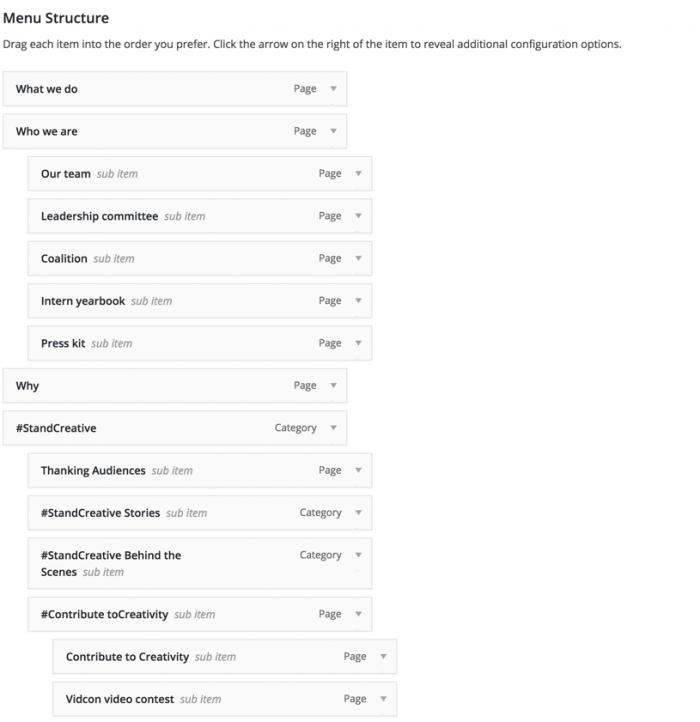
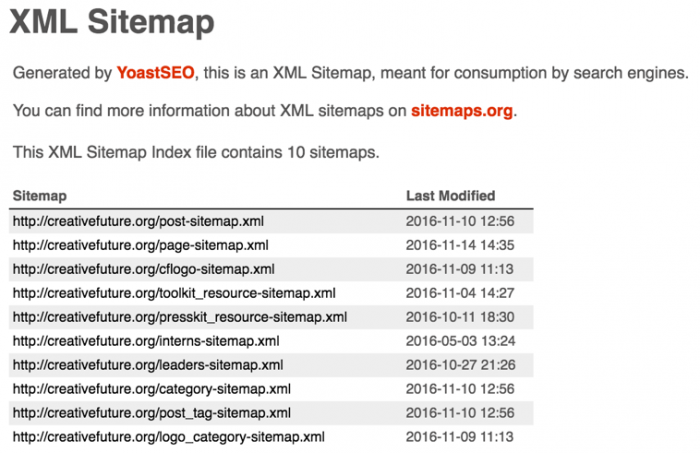
How do I improve my site’s navigation?
Make it as easy as possible to navigate from general content to more specific content on your site. Ensure more convenience for users with “breadcrumb lists” – a row of internal links at the top or bottom of the page that allows for easy navigation back to previous sections or to the home page.
3. Optimize Content
Obviously when you build a website, it’s important to make it valuable to visitors, but you should also be mindful of how search engines view your site. That said, there are some steps you can take that can help search engines understand your website better without compromising the integrity of your content.
Create Content That Can Be Indexed
What is indexing and how does it help my site?
Search engines understand content in HTML or text format, but they have trouble understanding content in other common web formats, such as image files, Flash files, Java applets, and other non-text content. Simply put, a website doesn’t always look the same to a person as it does to a search engine. Creating indexable content ensures your site is structured for both search engines and people.
How do I make my content indexable?
We recommend using HTML or text where possible on your site. Of course, you will still want to use graphics or other visual features, but when you do, make sure you have supplemental text that will help search engines understand the content on your site. Be careful, though – using an excessive number of keywords or duplicating content solely to boost your site’s search ranking can lead your site to be demoted.
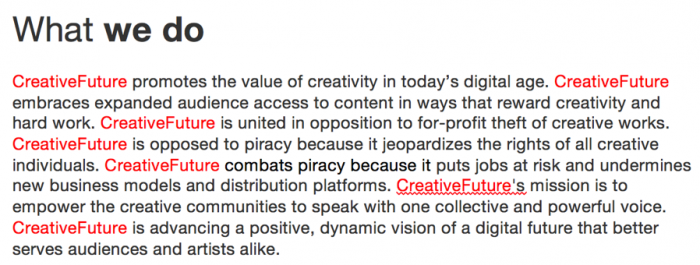
You can use a tool like SEO-Browser.com and MozBar to see exactly how search engines see your content and to help you double-check your work.
There are several more advanced measures you can take to make your content indexable. These include:
- Provide alternate text (sometimes just called “alt text”) in HTML for images in GIF, JPEG, or PNG format to give search engines a written description of the visual content
- Supplement site-specific search tools, which don’t serve any SEO benefit, with clear navigation links that search engine crawlers can find and index
- Provide a transcript for video and audio content so that search engines can index the contents
A Note About Mobile
Google now ranks sites differently on mobile platforms and desktops. If you do not have a version of your site optimized for mobile devices, then it is likely that your site will be demoted when a user searches for it on a mobile device. Mobile search now accounts for over 50% of searches, and continues to grow, so ensuring your site is properly configured for mobile devices is crucial.
4. Research and Target Keywords
SEO is about more than just directing traffic to your website – it’s about making sure the people directed to your site find what they were looking for. Your SEO keywords are the words and phrases in your content that make it possible for people to find your site through search engines. Having knowledge about the keywords people use to find sites like yours is an essential part of any SEO strategy.
What is keywording and how does it help my site?
Keyword research involves identifying the actual search terms people enter into search engines to find sites about particular topics. Having knowledge of these keywords and using it to develop a list of key words for your own site is a key part of a successful SEO strategy. It will help you rank highly for the keywords people are searching for when they’re looking for what your site offers.
How do I research and implement keywording?
For maximum impact, your keywords should be well-researched and properly placed.
There are several resources available to aid in your keyword research. Some good tools include: Google AdWords Keyword Planner, Google Trends, Microsoft Bing Ads Intelligence, and WordTracker’s Free Basic Keyword Demand. Because keyword trends change over time, implementing keywords is not a one-time occurrence but should be an ongoing part of your routine site maintenance efforts. Keep in mind that the relevance of particular keywords has a greater impact on search rankings than the frequency with which you use particular keywords (sometimes called keyword density).
Keyword Relevance
We are mobilizing the creative community to speak up about the value of creativity – and speak out against the harm caused by piracy. In order for our voices to be heard, creatives must take part in the conversation.
Vs.
Keyword Density
We are mobilizing the creative community to speak up about the value of creativity. We want the creative community to speak out against the harm caused by piracy. In order for the voices of the creative community to be heard, and to fight piracy, the creative community must take part in the conversation to promote creativity and fight piracy.
Once you have identified your keywords, you should place them in high-attention areas that search engines are known to consider when determining the relevance of a site to a particular search: titles, headings, descriptions, content, image titles, alt text, anchor text, and URLs.
Some site owners engage in a practice called keyword stuffing, which involves littering pages (or their meta tags) with dozens of repetitive keywords, many of which may have nothing to do with the contents of the site. Search engines can identify keyword stuffing and routinely penalize sites that engage in the practice. Consider using variations of a handful of very relevant keywords rather than keyword stuffing.
5. Leverage Social Media
Your social media presence can have a significant impact on search engine optimization. This section outlines ways you can boost your social media presence while improving your website’s SEO at the same time.
What is it and how does it help my site?
We know we’re stating the obvious, but social media is a form of electronic communication through which people create online communities to share information, ideas, personal messages, and whatever (platforms like Facebook, Reddit, Instagram). Search engines look at your social media influence when determining your website’s relevancy and ranking.

Social media marketing and SEO go hand-in-hand – effective social media strategies not only improve your social reach, but also direct traffic from social media to your page, thereby boosting your search rankings. In addition, since people don’t rely solely on search engines when looking for information, maintaining a strong social media presence is crucial.
How do I leverage social media?
While there are many ways you can leverage social media for SEO, you can start with these recommendations:
Grow and Engage Your Following
Since the total number of followers you have significantly impacts your search ranking, you should focus on growing your audience organically.

Search engines can detect the quality of your connections, so purchasing followers won’t help. Keep in mind, search engines take the frequency of your posts and how well you engage with your audience into consideration, so merely having followers isn’t enough: you must engage with them regularly and encourage their engagement with you (through “liking” posts, for example).
Make Your Content Searchable and Shareable
Your social media profiles must be public to reach as many people as possible. Facebook offers the ability to make your posts searchable through major search engines. To do this, navigate to your privacy settings and enable the option: “Do you want other search engines to link to your timeline?”

Also consider incorporating keywords and hashtags into your posts, and boost your most shared posts. Putting money behind them will increase the visibility of your content on social media. It doesn’t have to be a lot of money either – $10 on Facebook can go a long way if you choose the right audience parameters.
Take Advantage of Social Media Meta Tags
Social tags make it easy for people to share and they help search engines understand what your content is about. These tags go in your code to help determine what information appears on social pages when people share your URL. Adding meta tags to old posts that performed well can boost old content and help it maintain relevance. Consider using a tag tool to make the process easier and more manageable: Yoast, Socialize, Raven, and this Facebook Plug-in.
Link to Your Webpage
Since search engines frequently crawl social media, direct links on your page can boost your site’s ranking. Make sure you have a working link to your website in every social profile you have.
6. Measure and Track Success
Once you’ve implemented the steps outlined in this guide, you’ll want to keep track of whether your efforts have paid off. This section offers some suggestions on how to measure and track your SEO efforts.
What is measuring and tracking and how will it help my site?
Measuring and tracking your SEO strategy involves studying key performance indicators (KPIs) such as rankings, traffic, and conversions (people who visit your site and take some action, such as buying a product or becoming a member). Measurement is critical to success. Tracking the effectiveness of your strategy will help you identify areas that aren’t working and provide actionable data to help make future decisions.
How do I measure and track success?
Keyword rankings are a good metric to track. You should know if you’re targeting the right keywords. If none of your posts rank for their target keywords, you should consider finding less competitive words. If your keywords don’t slowly improve in the rankings, it may be time to adjust your SEO strategy altogether.
You should also know how people are getting to your site – whether it is from direct navigation (typed-in traffic), referral traffic (promotional or branded campaigns), or from search traffic (queries that send traffic from search engines).
There are several free analytic tools that can help monitor and track success: Google Analytics, Clicky Web Analytics, Piwik Open Source Analysis, Woopra Website Tracking, and AWStats. We also recommend using Google and Bing’s webmaster tools, which provide valuable insight into the performance of your website on their respective search engines. These dashboards reveal how many pages are indexed by search engines, which sites are linking to yours, and important warnings about the health of your website. They also provide suggestions for improving optimization and troubleshooting crawler access issues.
7. More SEO Reading
You know that saying from Field of Dreams – “If you build it, they will come”? Turns out, not so much.
SEO is critical for increasing your visibility online and driving traffic to your site. You can’t build a website and just expect people to find it. Many organizations hire SEO professionals to optimize their websites. You don’t have to.
The steps outlined in this guide are the fundamental building blocks to building your own SEO strategy. If you only have time to do one thing, we recommend building backlinks since they are the single most important factor search engines consider when ranking your website.
To learn even more about SEO, check out these in-depth resources:
- Moz’s Beginner Guide to SEO
- Google’s Steps to a Google-Friendly Site
Good luck, CreativeFuture member!

